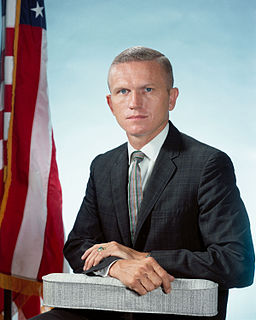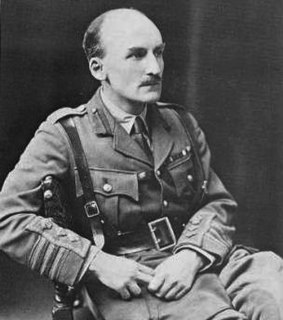A Quote by Napoleon Bonaparte
There are certain things in war of which the commander alone comprehends the importance. Nothing but his superior firmness and ability can subdue and surmount all difficulties.
Related Quotes
This writer, who is horribly perspicacious and vigorous, demonstrates the certainty of a great European war, and regards it with the peculiar satisfaction excited by such things in a certain order of mind. His phrases about "dire calamity" and so on mean nothing; the whole tenor of his writing proves that he represents, and consciously, one of the forces which go to bring war about; his part in the business is a fluent irresponsibility, which casts scorn on all who reluct at the "inevitable." Persistent prophecy is a familiar way of assuring the event.
Lincoln's appeal to "the better angels of our nature" failed to avert a fratricidal war. But the compassionate wisdom of Lincoln's first and second inaugurals bequeathed to the Union, cemented with blood, a moral heritage which, when drawn upon in times of stress and strife, is sure to find specific ways and means to surmount difficulties that may appear to be insurmountable.











































